"Jonah Takalua is well on the way to becoming the voice of his generation," one Oz television critic wrote of the Australian-born teenager of Tongan descent, a character in Chris Lilley's 2007 cult hit series Summer Heights High. In the mockumentary comedy, which aired in the U.S. on HBO, Lilley played not only a bratty queen bee and a campy drama teacher, but also troubled Pacific Islander Jonah, a rebellious and loudmouthed kid with a fondness for scrawling cartoon penises all over the place. Seven years later, Lilley's resident bad boy has gotten his own mockumentary with the new Jonah From Tonga, which premieres Aug. 8 on HBO in the U.S. But the voice Jonah is giving to his generation, and more so his Tongan community, is something many are unhappy about.
When Lilley's fans last saw Jonah on Summer Heights High, he was being expelled from school. Jonah From Tonga picks up four months later with Jonah living in Tonga with his uncle, a move his father and aunt felt would help teach him discipline. Instead, Jonah ends up disrespecting the community of the Polynesian archipelago so much that — spoiler alert! — he is sent back to Australia. But it's not just Jonah's television family that's upset with his behavior; many viewers have called Lilley out, both for donning brownface and for misrepresenting the Tongan community.
This is hardly new territory for Lilley, who played black rapper S'Mouse and Japanese mom Jen Okazaki in 2011's Angry Boys (which also aired on HBO), performing in blackface and yellowface in the process. When asked by Vulture if he had concerns about how American audiences would react to seeing him in blackface, Lilley said:
Yeah, and it's actually a big deal in Australia as well. The idea is that I play multiple characters. That's what I've always done. Part of what I like to do is to push the boundaries and try new things. When I came up with the idea of the boys' heroes on the wall, I thought, Well, they're going to be into hip-hop. They're going to want a rapper to come to their party, so I have to play a black guy. And I just thought, It's going to provoke people, it's going to be headlined — and certainly everyone in Australia fell into that trap. It was all over the place, like, 'Blackface! He's doing it!' Like, Australians definitely don't walk around dressed up in blackface going 'Ha-ha.' We're exposed to American culture and stuff, so we get it. I think I wanted to do it because I thought it was a challenging, new, interesting idea, and mostly I just thought it was a really funny character. I think once you get through 30 seconds of S'Mouse you realize there's more to the character than just a blackface joke. Like, obviously that's not the joke. You see that he's this vulnerable guy who's living at home with his dad and he gets exposed by the documentary for not being the big tough guy he's making himself out to be. There's a lot more going on. It's a character … It's kind of funny that there's only certain races that it's an issue — yes, it's that history with blackface — but, I don't know. There's no comparison. I think it's a bit stupid that you would shut yourself off to being able to do that.
Lilley didn't stop there. "I think I'm pretty brave with putting myself out there and looking stupid and doing things that are potentially offensive," Lilley told Vulture at the time. "I've already gone far enough with the blackface thing — I can't go much further." (Multiple requests by BuzzFeed for comment from Lilley were declined or went unanswered.) Yet, despite the charges of racism, Lilley said in a more recent Esquire about Jonah From Tonga that he didn't foresee an issue with performing in brownface because "with Jonah, the Pacific Islander, people aren't interested. They're probably not even going to watch the show, and it's a little more genuine for that."

Many Tongans, however, feel the opposite. Fahina Tavake-Pasi, the executive director of the National American Tongan Society, said that the title of the show was initially what piqued her interest, and as she learned more about it, she starting taking issue with what precisely Lilley was portraying on the show, which first aired in Australia in May. "The fact that the show is titled Jonah From Tonga really puts it up several notches," Tavake-Pasi told BuzzFeed. "The focus now is on Jonah from Tonga. It's him and all his awful lines. It almost speaks to the fact that it stereotypes brown people. When you're white trying to play brown and have never been in the community, what comes out is the stereotype of what's underneath that brown paint: a white man's stereotype, a white man's racism, a white man's perspective of our community, a white-man assumption, devaluing, all of that."
The use of brownface here is particularly troubling to many. Lilley, in a 2007 interview, acknowledged that as a thirtysomething white man he didn't look the part, saying, "I knew that physically I didn't really look like a Tongan kid but if you surrounded him enough with the other kids and got the hair right, maybe people would get the illusion." But the choice to play Jonah — and indeed S'Mouse and Jen — is galling to many in 2014, and what might have seemed subversive even a few years ago now merits intense scrutiny.
A Guardian piece in April called Jonah From Tonga a "modern minstrel show," laying out a code that leaves very little wiggle room for Lilley: "The first rule of blackface: don't wear blackface. The first rule of yellowface: don't wear yellowface. The first rule of brownface: don't wear brownface. It's a shame that no one told Chris Lilley." That would seem to echo the thoughts of Debunking White blogger alias_sqbr, who wrote of Jonah in Summer Heights High in 2008: "Apart from the inherent dodginess of a white person dressing as a non-white one, I felt the Tongan character was a fairly straightforward stereotype, played effectively and wittily but without any real attempt at subverting people's expectations. I also felt that was true of the other two characters … but this one bothered me the most, especially since the other Pacific Islander characters (played by real Pacific Islander boys) had no real voice of their own to act as contrast. I kept feeling sorry for those poor young actors, forced to play second fiddle to a caricature of themselves."


Some would argue that Lilley is just being subversive rather than, per the Guardian's Morgan Godfery, engaging in "racial cross-dressing." Others have come to Lilley's defense, arguing that his show is humorous rather than offensive. "Lilley's humour has never been warm and fuzzy or laugh-out-loud funny: it's comedy that makes you uneasy — of the 'Can you believe that he or she just said or did that?' variety — and the further it goes, the more uncompromising it becomes," Debi Enker wrote in the Sydney Morning Herald in May. Enker's colleague John Birmingham, in his review of the show, said: "As with Lilley's previous series, it takes only a few minutes to make out fracture lines along which people are going to split. The obscenity. The racism. The exhausting homophobia. The cruelty. The stupidity. Many viewers will never see past them, either because Lilley offends their old world sensibilities, throwing F- and C-bombs around like punctuation marks, or because of his crime against the finer feelings of more modern folk who do not care for the use of the words 'retard' or 'gay' as an insult."
And Giles Hardie wrote in The New Daily in May that Lilley is the "bravest Australian comedian currently working" and "has earned the right not to be labeled a minstrel." He continued: "There are some comedians, some of the best, who stand and stare at the edges of polite society. They don't look out, but in: They tug on the threads; they question the assumptions; they challenge us. They force society to laugh in recognition at an unacknowledged reality and while it laughs, to engage in some healthy introspection. That is what Lilley does. And he is one of a handful of comedians in the world who do so. It is easy to label Jonah as a form of blackface, however that is disingenuous."


That is not the view of Jarom Vaha'i, a Tongan-American who started a Change.org petition to have Jonah From Tonga canceled, and who sees the situation in a vastly different light than Hardie. "Given what he's done in the past, I wouldn't trust him to make something comedic cause he hasn't shown he cares about anyone's culture when he does his projects," Vaha'i told BuzzFeed. Lilley, however, maintains that he performs strenuous research in creating his characters. In 2011, Lilley told Vulture "because some of the characters are so far [from his life], [he] likes to read a lot of books and watch a lot of documentaries and television and reality shows" in order to gain a better understanding. But Vaha'i said the Tongan community feels Lilley did not do that with Jonah From Tonga. "He hasn't researched any of our culture and the things he's saying none of us can relate to or understand."
Like Vaha'i, Tavake-Pasi believes that there are major inaccuracies within the show that are hugely problematic for Tongan community, noting that the disrespect Jonah shows his elders, the sexual connotations he makes, and his incessant swearing are considered to be extremely inappropriate in a traditional Tongan home and would never be allowed. (In just the first episode of Jonah From Tonga, Jonah says "fuck" about 20 times. He uses the words "pussy" and "dick." He also calls his aunt "sexy" and his sister "fatty." And he paints vulgar graffiti on his relative's cars, buildings, and pigs.) "It's not saying 'Jonah From Australia', it's saying 'Jonah From Tonga'," said Tavake-Pasi, "and the fact that it's supposed to be representing a Tongan culture. I know even Tongans in Australia would feel the same way — they're traditionally built on that Tongan foundation. That's very inappropriate."
Many Tongans find the particular affront to the Tongan community to be just as upsetting as Lilley performing in brownface. "If this guy had displayed something that was a little bit accurate, maybe it wouldn't be so offensive," said Tavake-Pasi, "even though he's painted himself brown, but it's offensive that a white guy who knows nothing about the community tries to be funny with it, and it's not funny. It's just ignorance." (Lilley said in an interview published this week on Splitsider that he did a lot of research for the show, spoke with people who have been to Tonga, and that he got "to know the families and [he] thinks if they watch it and see how accurate it is, then it's going to be funny for everyone.")

As of publication, 9,744 people have signed Vaha'i's petition. Organizations such as the National American Tongan Society have released statements via email asking their friends and family to sign the Change.org petition, and other minority groups have also started speaking out against the show. Last Friday, the Japanese American Citizens League (JACL) released a statement condemning HBO's decision to run the show and urging people to support the petition, saying: "The JACL is disturbed that HBO would condone such a racist and offensive show and urges HBO to pull Jonah From Tonga from its lineup." The Tongan community is also working to spread the word on social media, hoping to get as many people as possible to boycott the show and asking that people cancel their HBO subscriptions should the network follow through with airing the series, according to Tavake-Pasi. Interestingly, the show was not considered a ratings success when it aired in Australia in May, bringing in only 287,000 viewers, a far cry from Summer Heights High's 1.2 million viewers.
When asked about the controversy surrounding the show and if they were comfortable with the brownface, HBO provided BuzzFeed with the following statement: "Chris Lilley is an award-winning writer and performer whose work has delighted millions of people all over the world. He was first introduced to HBO viewers six years ago with his acclaimed series Summer Heights High. Jonah From Tonga is a spin off of that series (which is currently the best-selling TV show on DVD in Australian history). Chris is known for creating and performing a wide range of characters both male and female from the privileged young high-school girl Ja'mie, to rapper S. Mouse!, to Japanese mom Jen Okazaki, and the elderly guard at a juvenile detention center, Gran, among others. His second series, Angry Boys, ran on the network two-and-a-half years ago. He joins a long list of comic artists who have brought their original voices to the network."
That's not how many, particularly those in the Tongan community, view Lilley's work; they see it as racism and stereotyping rather than a subversive comedic performance. Jonah — and Jonah Takalua — might be intended as playful satire, but the effect is anything but funny for those whose culture is being skewered on-screen. "We've been thrown backwards in time," said Tavake-Pasi.
